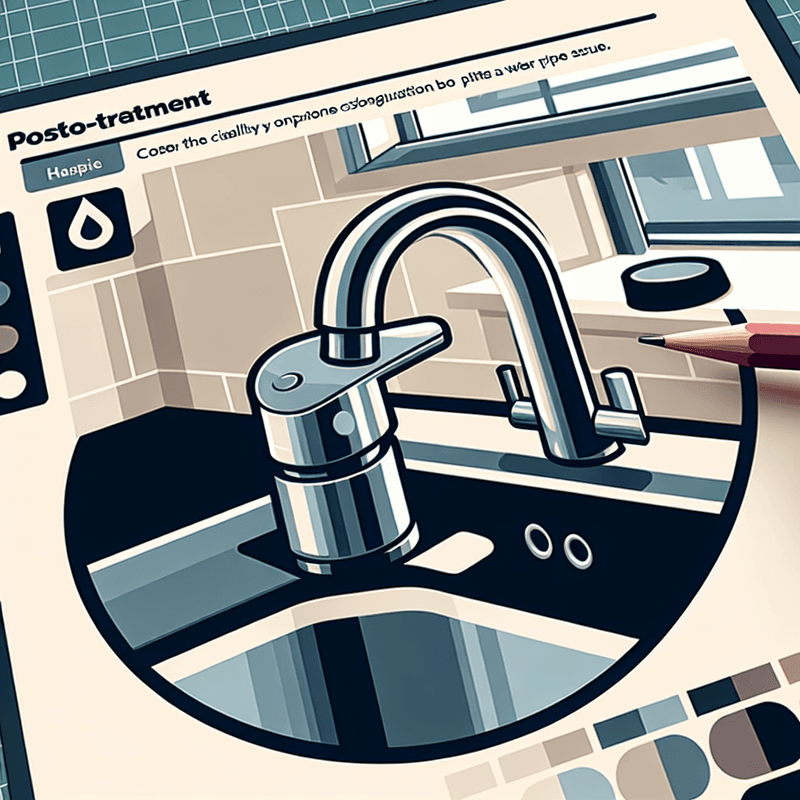When it comes to kitchen inconveniences, few situations are as frustrating as dealing with a clogged sink. Especially when you’re in the middle of preparing a meal or cleaning up afterwards, a sink that won’t drain properly can throw a real spanner in the works. Understanding why kitchen sinks clog can help you prevent future blockages and know when it's time to call in the professionals.
Kitchens are the heart of the home, and the sink is often at the center of much activity. From washing dishes to preparing food, a lot goes down your kitchen drain. Unfortunately, not everything that makes its way into your sink is good for your plumbing. In this post, we'll delve into the common causes of kitchen sink blockages, how to effectively tackle them yourself, and crucial advice on when to turn to a professional.
Typical Culprits Behind Kitchen Sink Blockages
Various items and substances can lead to a blocked kitchen sink. Common offenders include:
- Grease and Fats: These are perhaps the most nefarious since they can solidify within pipes, narrowing the passageways and eventually leading to a block.
- Food Scraps: Bits of food, even small ones like rice or pasta, can accumulate and cause issues.
- Coffee Grounds and Tea Leaves: Contrary to popular belief, these do not break down easily and can quickly lead to sediment buildup.
- Foreign Objects: Anything that isn’t supposed to be in your pipes, from silverware to plastic wrappers, can cause immediate blockages.
Signs of a Clogged Kitchen Sink
A kitchen sink clog may not always be immediately apparent. Here are a few signs that indicate a blockage is forming or has already formed:
- Water drains more slowly than usual.
- Water backs up out of the sink drain.
- Gurgling sounds come from the drain.
- Unpleasant odours emanate from the drain, indicating trapped food and other decomposing materials.
Dealing with the Blockage: DIY Fixes
If the problem seems mild, there are a few methods you can try before calling a professional:
1. Boiling Water: This can sometimes dissolve or dislodge buildup, particularly greasy substances. Pour slowly directly down the drain.
2. Plunger: A common household plunger can often dislodge minor blockages. Make sure to cover the overflow drain and create a tight seal.
3. Baking Soda and Vinegar: A natural alternative to chemical drain cleaners. Pour half a cup of baking soda followed by half a cup of vinegar. Cover the drain if possible and let sit for an hour.
4. Plumber’s Snake or Drain Auger: This tool can remove obstructions that are deeper in the pipe.
Why These Blockages Are More Than Just a Nuisance
Besides being a practical hindrance, clogged sinks can lead to more serious issues:
- Water Damage: Overflows can cause significant water damage to cabinets and floors.
- Pipe Damage: Prolonged blockages increase pressure in pipes, potentially leading to cracks or bursts.
- Health Risks: Standing water and decomposing organic material can breed bacteria and attract pests.
When to Call a Professional
Sometimes, a blockage is too tough, too deep, or too serious to handle on your own. Here’s when you should consider hiring a professional:
- If DIY methods fail to clear the blockage.
- If you experience repeated blockages; this could indicate a deeper, more chronic issue.
- If there is water damage or if the structure of your pipes is compromised.
Professionals have the tools and expertise to diagnose and resolve issues without risking further damage to your plumbing system.
Long-term Prevention Tips
To keep your kitchen sink draining smoothly:
- Avoid letting grease, coffee grounds, and food scraps go down the drain. Use a compost bin for organic waste.
- Regularly use boiling water or a baking soda and vinegar mix to maintain clear pipes.
- Install a sink strainer to catch debris.
- Consider regular professional check-ups to catch and fix minor issues before they become major problems.
Conclusion
A clogged kitchen sink can disrupt your daily routines and cause larger plumbing issues if not addressed. By understanding what causes these blockages and how to effectively respond to them, you can keep your kitchen sink functioning smoothly. Remember, while DIY fixes can be effective for minor blockages, don't hesitate to contact a professional if the problem persists or is severe. Regular maintenance and mindful use of your sink will go a long way in preventing future troubles.





